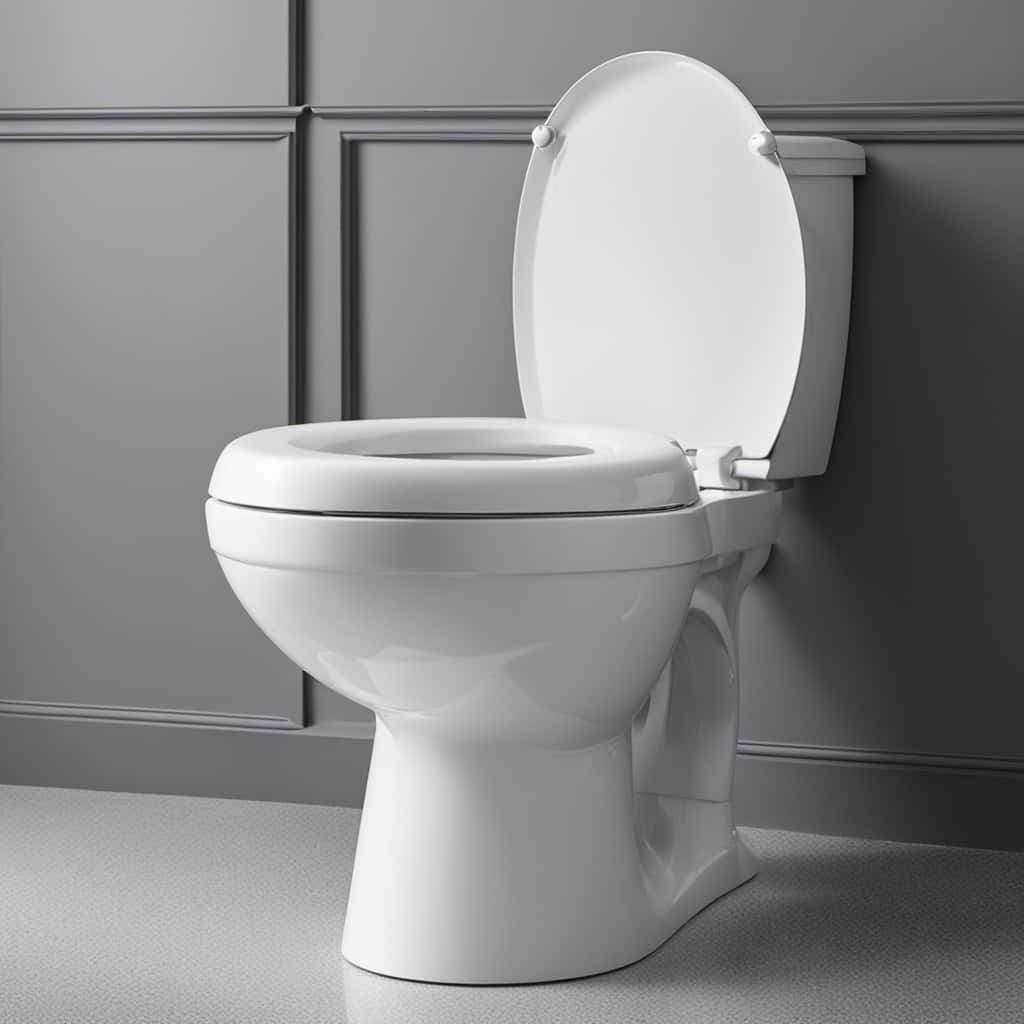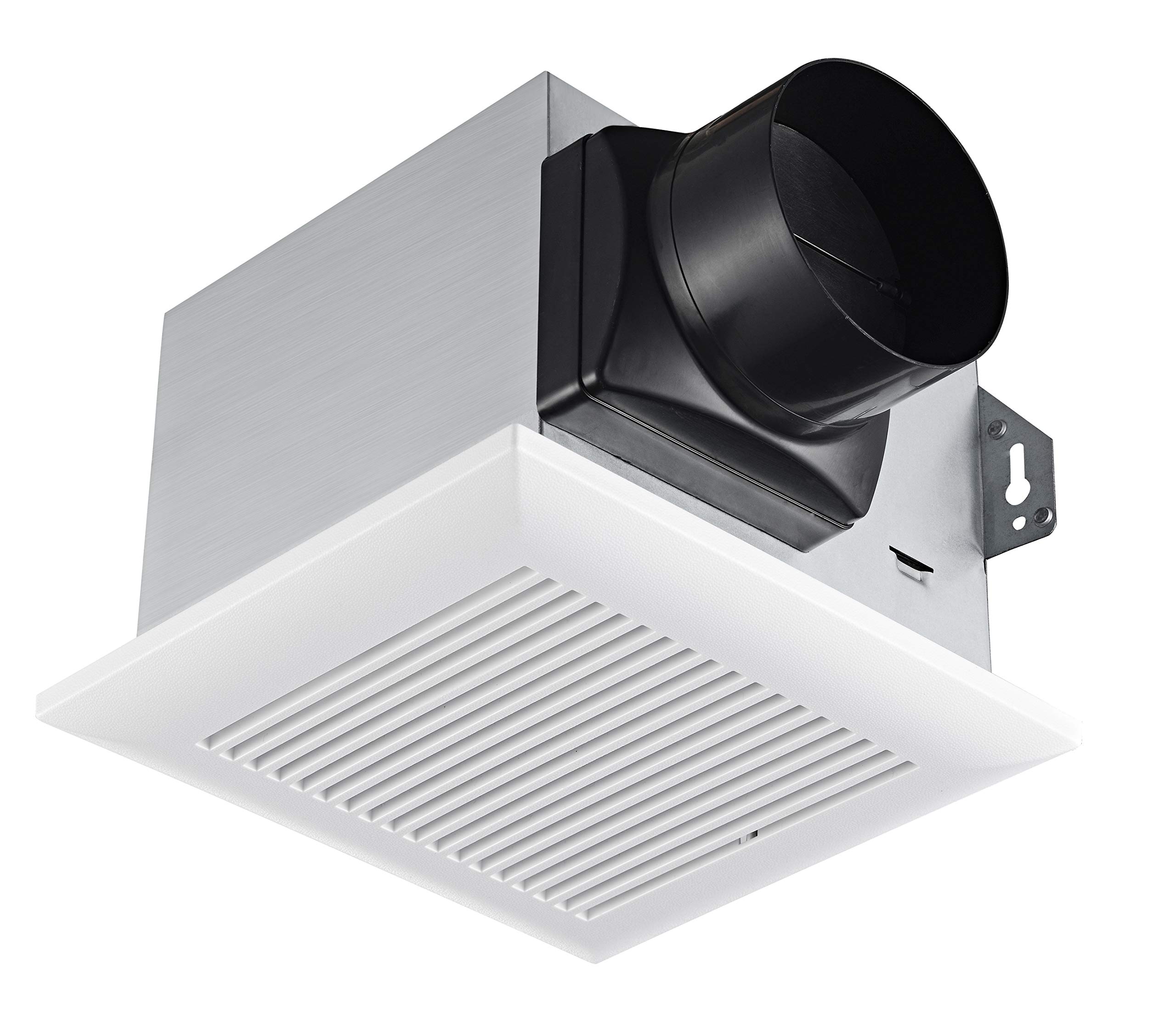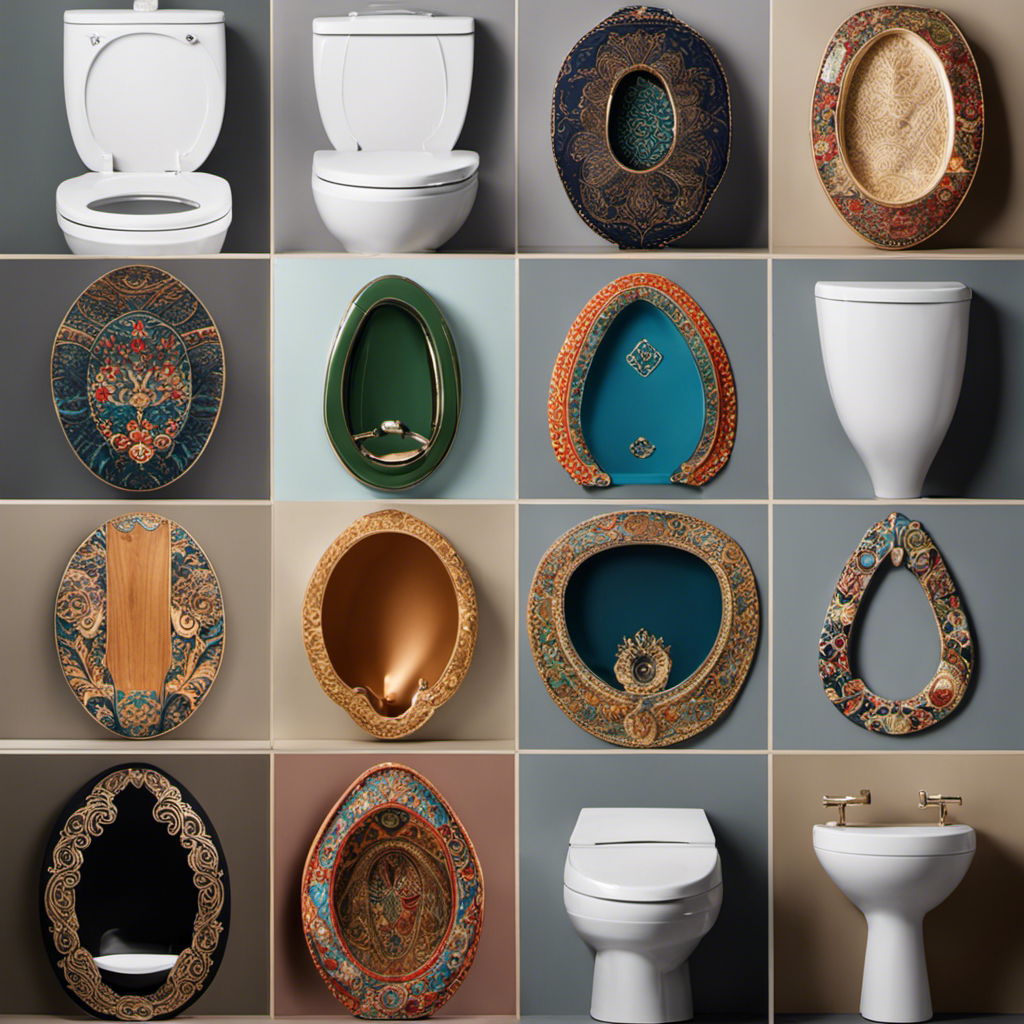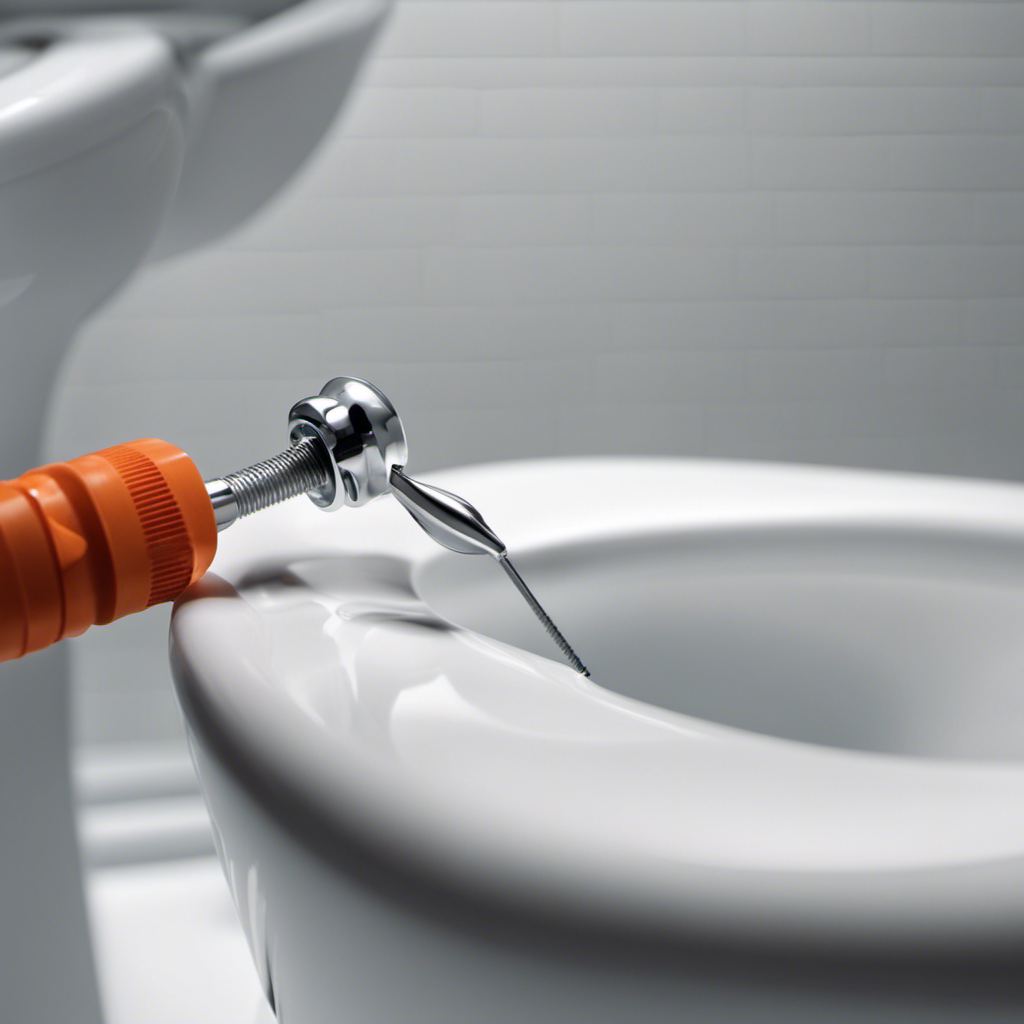We’ve all been there – dealing with a clogged and smelly RV toilet tank is no fun. But fear not, because we’ve got the solution for you.
In this article, we’ll explore the best methods to break down waste in your RV toilet tank. From natural options to effective enzymes, we’ll cover it all.
So, if you’re looking to maintain a healthy and efficient RV toilet tank, keep reading for some expert tips and tricks.
Key Takeaways
- Enzymes and bacteria are natural methods for breaking down waste in RV toilet tanks.
- Chemical options, labeled as biodegradable and non-toxic, can effectively break down waste and control odors.
- Choosing the right enzyme treatment is important, considering waste breakdown requirements, tank size, and frequency of use.
- Using biodegradable toilet paper is crucial for efficient waste breakdown and the longevity of the RV toilet system.
Natural Methods for RV Waste Breakdown
To naturally breakdown waste in our RV toilet tank, we can rely on a combination of enzymes and bacteria. DIY solutions for RV waste breakdown offer eco-friendly alternatives for RV toilet tank treatment.

Enzymes are organic compounds that speed up chemical reactions, in this case, the breakdown of waste. They work by breaking down complex molecules into simpler forms that can be easily digested by bacteria.
Bacteria, on the other hand, are microorganisms that thrive in our RV toilet tank and feed on the waste. They convert it into harmless byproducts such as water and carbon dioxide.
Chemical Options for RV Toilet Tank Waste Treatment
One chemical option we can use to break down waste in our RV toilet tank is a specialized treatment solution. There are several chemical alternatives available in the market that effectively break down waste and help control odors in the tank. These solutions typically contain enzymes and bacteria that work together to break down solid waste and toilet paper.
When choosing a chemical option, it’s important to consider eco-friendly options that are safe for the environment. Look for products that are labeled as biodegradable and non-toxic. These options are designed to be environmentally friendly and don’t harm the natural ecosystem when they’re disposed of.

It is also recommended to choose a chemical treatment solution that’s specifically made for RV toilet tanks. These solutions are formulated to work effectively in the unique conditions of an RV system. They’re designed to break down waste quickly and efficiently, preventing clogs and odors. Remember to follow the instructions provided by the manufacturer for optimal results.
Effective Enzymes for Breaking Down Waste in RV Toilets
We can continue the discussion from the previous subtopic by exploring the effectiveness of enzymes in breaking down waste in our RV toilets. Enzyme alternatives for RV waste breakdown are a popular choice among RV owners due to their eco-friendly and efficient nature.
Enzymes work by breaking down organic waste, such as toilet paper and solid waste, into smaller particles, making it easier for the waste to be flushed out of the system. When choosing the right enzyme treatment for your RV toilet tank, consider factors such as the type of waste breakdown required, the size of your tank, and the frequency of use. It’s important to read product labels and select a treatment that’s compatible with your RV toilet system.
Biodegradable Toilet Paper for Efficient Waste Breakdown
Continuing our discussion on effective waste breakdown in RV toilets, let’s now explore the use of biodegradable toilet paper.

When it comes to maintaining a healthy and efficient RV toilet system, choosing the right toilet paper is crucial. Opting for septic safe toilet paper ensures that it will break down easily and won’t clog up your tank.
Biodegradable toilet paper is designed to dissolve quickly, reducing the risk of blockages and promoting efficient waste breakdown. This eco-friendly option is made from natural materials and is specifically formulated to be gentle on septic systems.
By using biodegradable toilet paper, you not only ensure the longevity of your RV toilet system but also contribute to preserving the environment.
Tips for Maintaining a Healthy RV Toilet Tank
To maintain a healthy RV toilet tank, we need to regularly use a tank treatment solution. This solution helps in cleaning the tank and prevents odor buildup. In addition to using a tank treatment solution, there are other tips that can help keep your RV toilet tank in good condition. Here are some recommendations to follow:
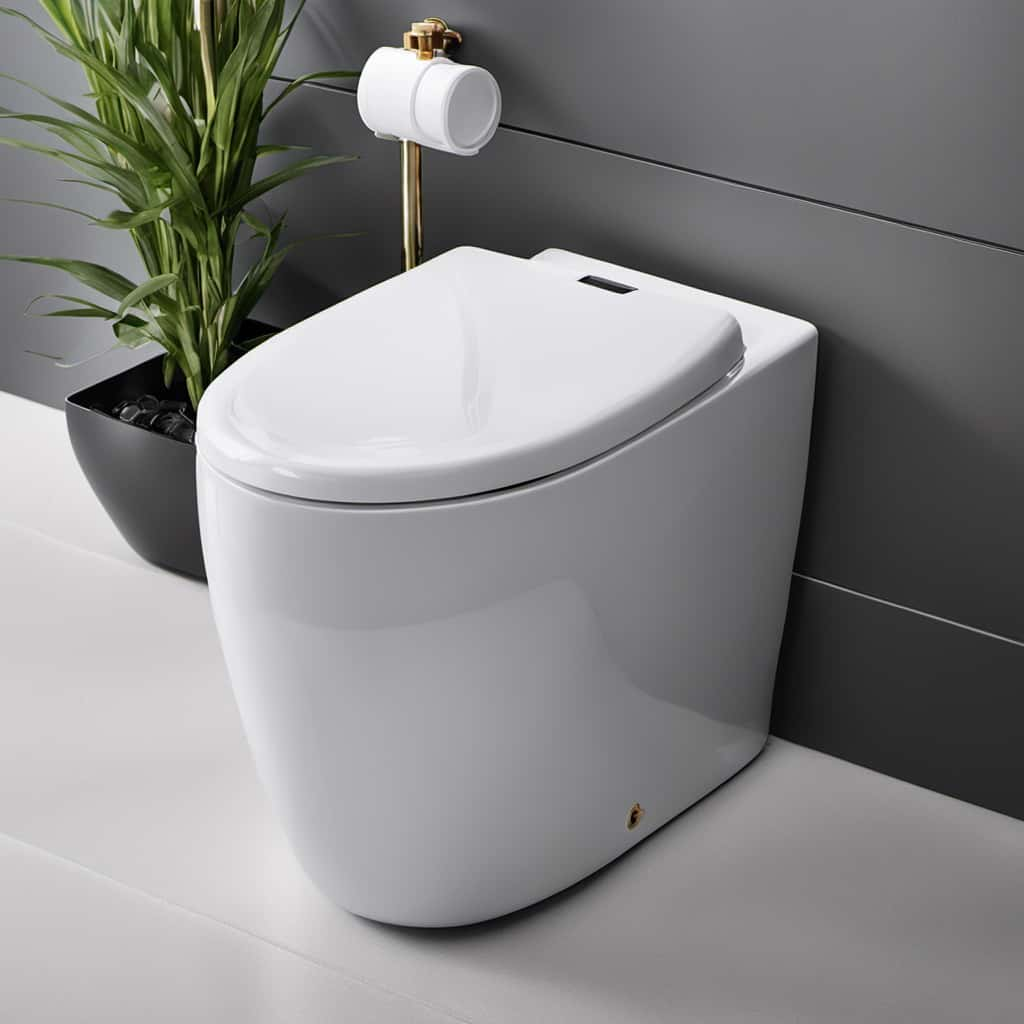
| Tips for Maintaining a Healthy RV Toilet Tank |
|---|
| 1. Regularly clean the tank with a tank treatment solution. |
| 2. Use biodegradable toilet paper to prevent clogs and facilitate waste breakdown. |
| 3. Avoid using harsh chemicals or cleaners that can damage the tank. |
| 4. Empty the tank regularly and ensure proper disposal of waste. |
Frequently Asked Questions
How Often Should I Clean My RV Toilet Tank?
To prevent clogs in an RV toilet tank and maintain proper water levels, regularly clean the tank. Cleaning frequency depends on usage, but a general rule is to clean it every 1-2 weeks.
Can I Use Regular Household Cleaning Products to Clean My RV Toilet Tank?
Regular household cleaning products are not recommended for cleaning an RV toilet tank. Instead, using enzymes specifically designed for RV toilets can effectively break down waste and prevent clogs. The benefits of using natural cleaners include maintaining tank health and preventing odors.
Is It Safe to Dump RV Toilet Waste Into a Regular Septic System?
Dumping RV toilet waste into a regular septic system may have negative impacts on its functioning. It is advisable to explore alternatives such as using RV dump stations or portable waste tanks to ensure proper disposal without compromising the septic system.
Can I Use Bleach to Clean My RV Toilet Tank?
We recommend using eco-friendly options instead of bleach to clean our RV toilet tank. Bleach alternatives are safer for the environment and won’t harm the tank or the waste breakdown process.
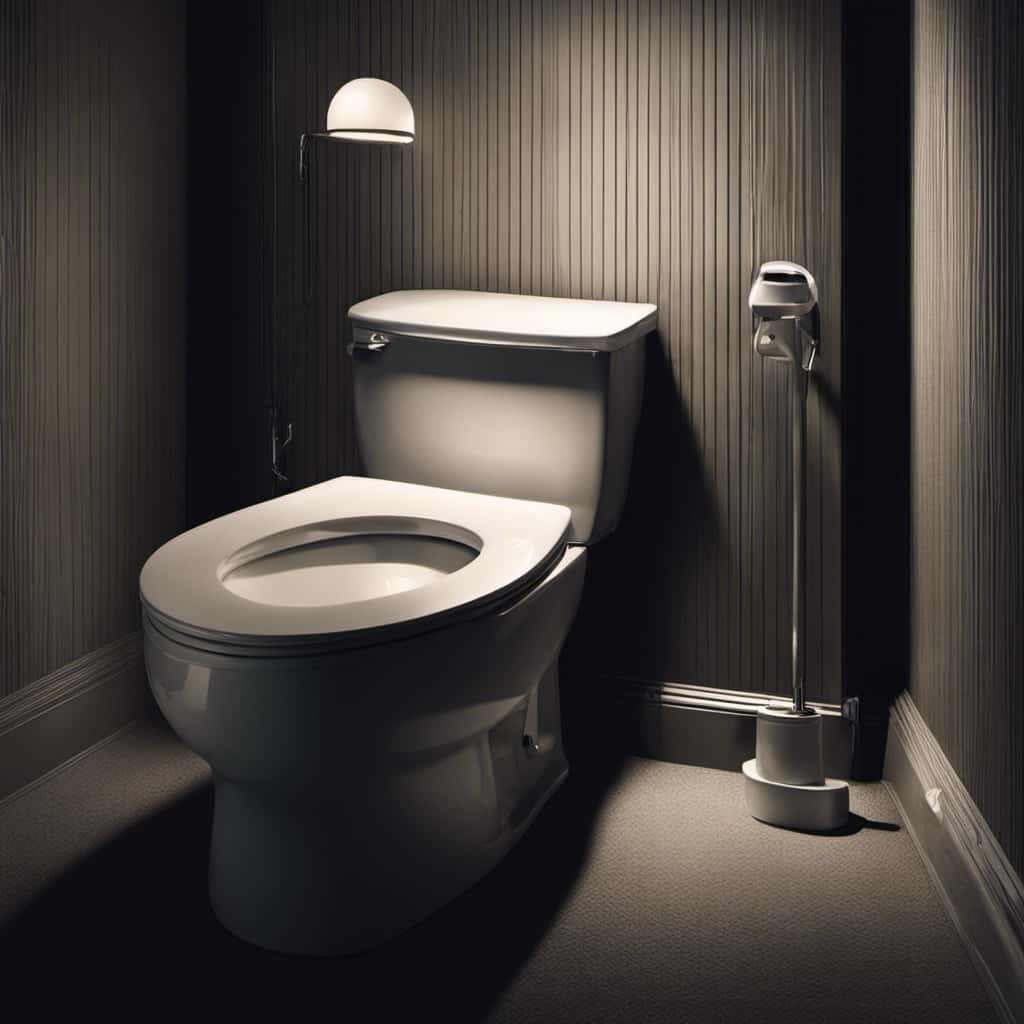
What Should I Do if My RV Toilet Tank Starts to Smell Bad?
To prevent bad smells in an RV toilet tank and maintain cleanliness, we recommend regular maintenance. Proper waste breakdown products, like enzyme-based treatments, can help eliminate odors and keep the tank clean.
Conclusion
In conclusion, maintaining a healthy RV toilet tank is essential for a pleasant and hassle-free camping experience. Whether you choose natural methods, chemical options, effective enzymes, or biodegradable toilet paper, breaking down waste is crucial.
By following these tips and regularly treating your tank, you can ensure efficient waste breakdown and keep your RV toilet clean and odor-free.
So, don’t overlook the importance of proper waste management in your RV and enjoy your camping adventures to the fullest.
